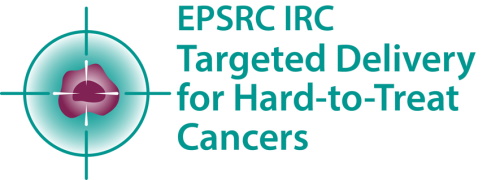
Submitted by L. Millard on Sun, 29/05/2022 - 21:17
This month’s Cancer in Sight blog by IRC Research Associate Dr Niamh Fox reflects on the benefits of multidisciplinary teams and the importance of outreach for the future of diversity in science.
In her blog titled ‘Spreading the scientific word: how effective outreach helps shape diversity in multidisciplinary teams’ Dr Niamh Fox, who is part of the Fluids in Advanced Manufacturing Group at the Institute for Manufacturing at the University of Cambridge, explains why working across disciplines provides a range of specialisms required in developing targeted delivery for hard-to-treat cancers: “Traditionally, scientific disciplines have often operated in silos, but the IRC breaks this model to enable the physicians to work alongside the chemists and engineers – it’s a holistic approach that helps to streamline the journey from lab to clinic. It’s all very well if the engineering of a drug delivery device is working well but if it doesn’t do what is needed to the biology, the solution is stymied. Similarly, a single device perfected in the lab is not much use unless it can be manufactured at scale to meet the needs of potentially hundreds of patients.”
While the research itself is compelling, the ability to communicate the science to the wider world is, I believe, essential. If we can’t communicate to the public, it’s almost as if the work has never been done. I think the onus is on us, the scientists, to explain in an accessible way what we're doing and why it's beneficial. Dr Niamh Fox, IRC Research Associate
Dr Fox champions the importance of outreach to shape diversity in science – “while the research itself is compelling, the ability to communicate the science to the wider world is, I believe, essential. If we can’t communicate to the public, it’s almost as if the work has never been done. I think the onus is on us, the scientists, to explain in an accessible way what we're doing and why it's beneficial.” Communicating the possibilities of science as a career to young children is, believes Dr Fox, key to attracting future talent: “If we're not encouraging all children at a really young age, and they choose not to study science, it's not surprising to find a lack of diversity in the profession. It can be so beneficial to have a varied and diverse input from a whole range of people with different points of views that can spark new ideas and perspectives to overcoming research challenges.”
• Read the full blog ‘Spreading the scientific word: how effective outreach helps shape diversity in multidisciplinary teams’ by Dr Niamh Fox here.
• Watch short Cambridge Festival video by Dr Niamh Fox, ‘Imaging medicine in the body: from blood and guts to brains in a box’ on the IRC YouTube channel here and the Cambridge Festival video ‘Seeing is believing: what can microscopes tell us about drug delivery?’ here.


